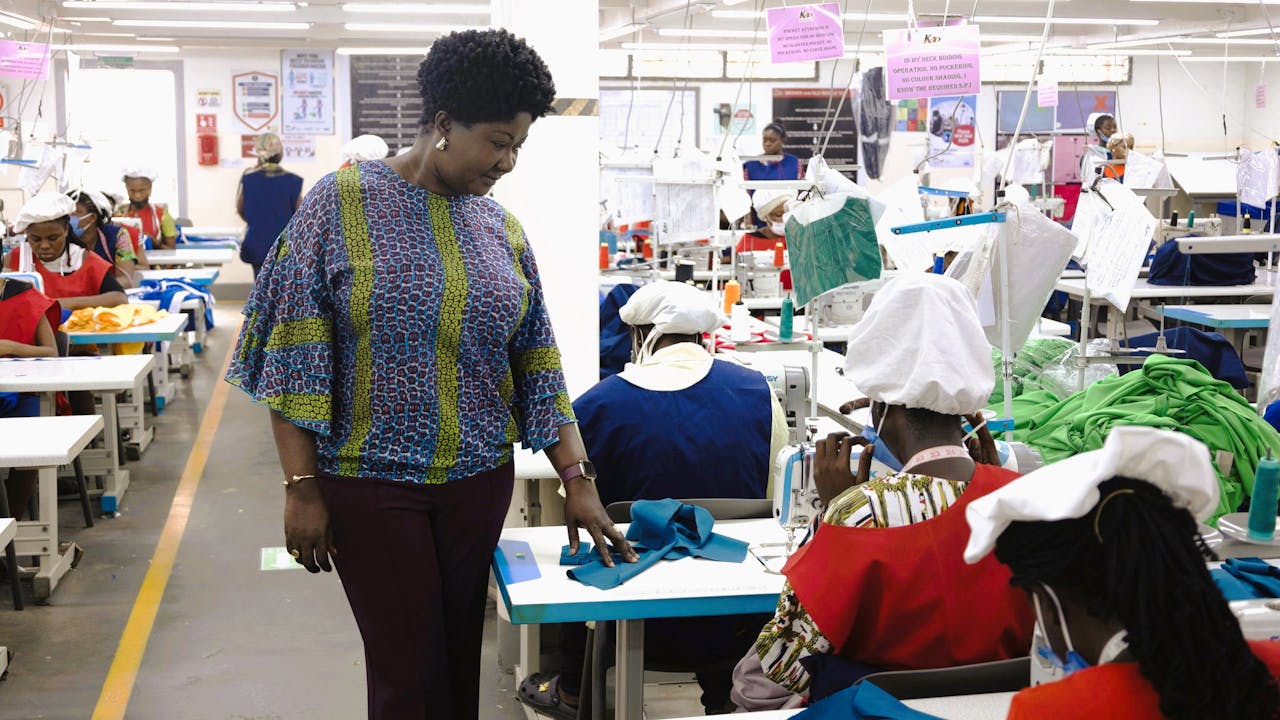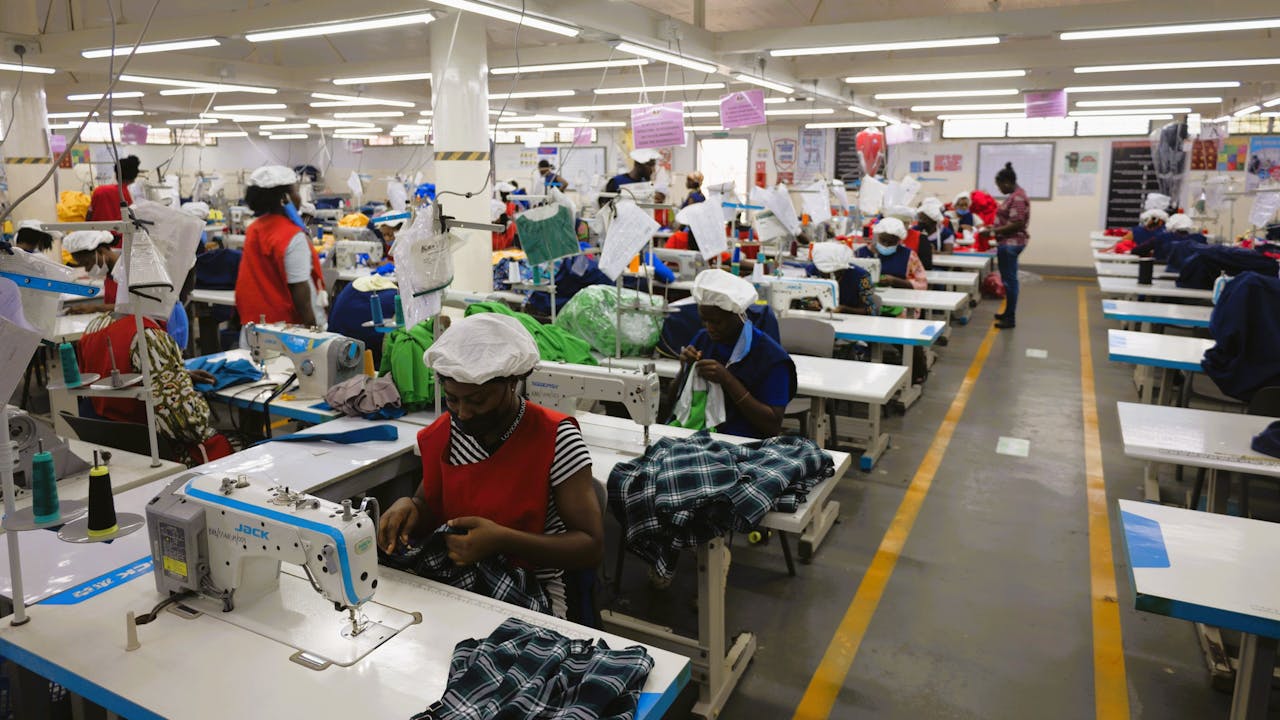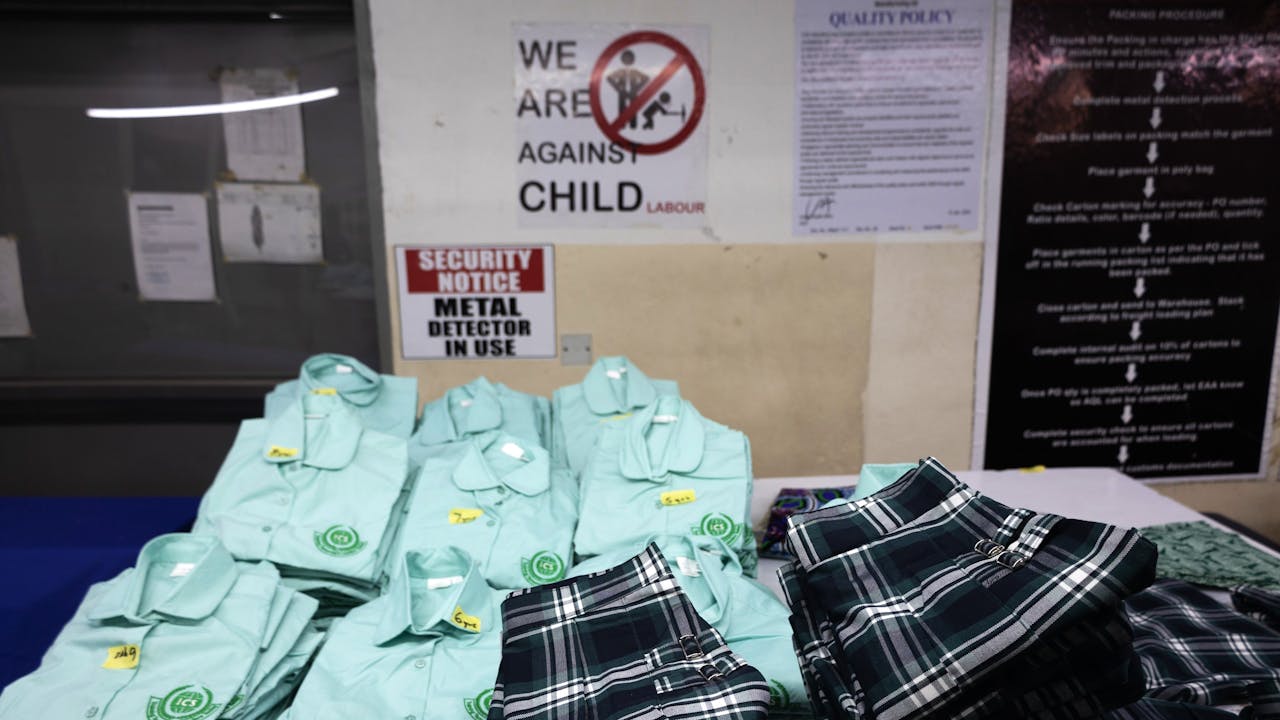Since I was a young child, I always knew I wanted to follow my mother's path and work in garment making. But I didn't anticipate how far my journey would bring me. Now, my business employs hundreds of women. Recent improvements in productivity, occupational safety, and social policies have created a working environment that benefits both our staff and our customers.
When I was about six years old, my mother set up a small workshop in our home to make garments that she sold to local department stores.
Even though the workshop was small, a few other women worked alongside my mother there. They were like my aunties. Some of them took me to school or picked me up from school. We ate together. We did everything together. We were like a family. That's how I first saw the garment manufacturing industry.
Back then, I would get up every morning and go to sit in the workshop. I would stand behind the industrial sewing machine and try to sew and, every few months, I would end up with a needle in my finger and need to go to hospital.
My mother told the other workers: "don't allow her inside the workshop". But I always got in somehow.
I was in my early twenties when I started making clothes myself. At that time, the customers would come with their fabric, and I would design and make clothes to fit them. Everything was custom-made.
I did that for four or five years before some customers started suggesting that I should produce on a larger scale. Then one day, some expatriate customers said that I should attend a trade show in the United States.
It sounded like climbing the tallest mountain in the world. But it wasn't impossible.
At the time, I was a member of the Ghana Association of Women Entrepreneurs and they helped find funding for me. So, I took a bold step, and I went to a trade show.

There was no ambiguity about what I was going to do as an adult. My mother was quite bold, so I think I must have gotten that from her. (Ghana, 2024)
© ILO/OIT Anders JohnssonDuring the trade show, one client came to my booth and said: "I love this dress, but I need 100 pieces." I was totally unprepared. I was shocked that somebody could actually ask me for 100 dresses.
In the booth next to mine, there was a lady from Thailand. I told her about the request. She replied: "What did you think you were coming here to do?" Then, she offered to help me produce the order.
I went with her to Thailand. There I saw many small factories, and each carried out a single job. One factory only made collars and another only sleeves. In the last factory, they put all the pieces together and packed the products. It was all very orderly.
I thought, "The women in these factories are just like me, so why can't we do this in Ghana?" We didn't have the know-how, but I knew we could figure it out. So, that's how I got into mass production.
I thought, "The women in these factories are just like me, so why can't we do this in Ghana?" We didn't have the know-how, but I knew we could figure it out.

When I came back from my trip to Thailand, I decided to use what I had learned to give jobs to people in Ghana. I started producing larger volumes and with the money I made, I bought more machines.
Now, we are able to produce thousands of items. At full scale, we have over 400 workers in the factory. If we receive a large order, then it can be twice that number.
Over 90 per cent of my staff are women. Mostly, they are working to feed their children and, in some cases, their husbands and parents as well. So you see the ripple effect of every good thing that you do. Personally, I see how much value there is in investing in women.
When you put the effort into training women, there's loyalty and commitment. When the workers see that you care about them, they stay with you, even through difficult times. Yes, our issues are unique, but as I am a woman, I understand.

Some of my female staff have issues with their menstrual cycles, so I asked a gynaecologist to come to the factory. As a business owner, there are sometimes challenges. But when the workers see that you care about them, they stay with you. (Ghana, 2024)
© ILO/OIT Anders JohnssonA few years ago, I learnt that the International Labour Organization had rolled out a programme working directly with enterprises in the garment sector, helping with the transfer of skills, workplace safety and health, and social policies.
Through the programme, experts have come into the factory to help train our staff. They are helping us to be more competitive. We have learned many things, such as the industrial engineering of garment patterns. Since then, we have invested in computers to digitise our patterns and be more efficient.
We have also started to make use of excess fabrics that we would normally have thrown away. Now, we turn them into products that we can sell, like hair ties or pouches.

When customers come to buy from us, they see that we are serious. Meeting all these international requirements has made us more attractive to customers. (Ghana, 2024)
© ILO/OIT Anders JohnssonThanks to the ILO's programme, we have made many improvements. Some are costly, but the changes are helping us to gain market access. Customers take us seriously when they see our standards.
We have a fire exit and clearly marked spaces and lanes that must not be blocked, so that workers can leave safely if there is a problem. The workers have access to drinking water and washrooms.
Our social policies mean that, even if we are hiring somebody for one day, it has to be documented. We check all the workers' IDs to make sure their age complies with international standards.
In the factory, overtime is voluntary, and it is all documented and digital. The workers punch in with their fingerprints or their eyes, so there are no disputes.
In the beginning, some of the staff found the paperwork very tedious, but now they understand why we do this. It's all clear and everybody's happy.
The improvements to working conditions benefit the business itself. The workers feel that you care about them, so they are also committed to the growth of the business.

We have also introduced a Workers' Committee that holds regular meetings. If there is any grievance, the information is channelled to the management. And if there is a tight deadline for an order, we discuss it with the Committee to see how we can make it happen. It has really helped the relationship between the management and the workers.
At the end of the day, the improvements to working conditions benefit the business itself. The workers feel that you care about them, so they are also committed to the growth of the business.
It has been very fulfilling to reach this point. For me, the hardest moments have been when we need to let workers go. That is my nightmare, and it drives me constantly to work more.
Sometimes I wonder how I got here. I didn't put pen to paper to do it. I jumped right in. I always knew this was what I was going to do.

Recently the ILO project supported my participation at a garment trade show in Las Vegas where I promoted my business. (United States, 2024)
© ILO/OIT